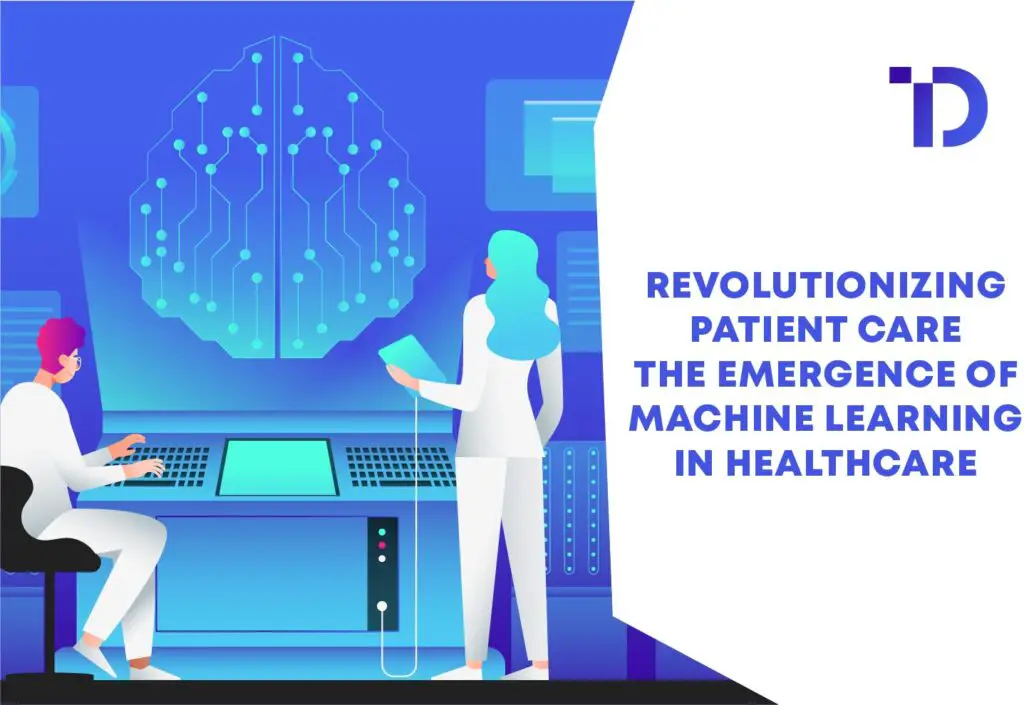As modern medicine straddles the crossroads of innovation and traditional practices, a pivotal transformation is occurring, guided by advances in digital technology. Among these, the burgeoning field of machine learning in healthcare has begun to change the foundation of patient care. With capabilities ranging from pattern recognition to predictive analytics, machine learning technologies present an opportunity to significantly refine diagnostic accuracy, optimize treatments, and foretell medical outcomes with a finesse never previously attainable.
Understanding Machine Learning in Healthcare
At its core, machine learning is an artificial intelligence (AI) discipline that emphasizes the development of algorithms capable of learning and adapting without being explicitly programmed to perform specific tasks. It signifies a methodology wherein computer systems can grow smarter by accumulating and analyzing data, revealing patterns, and making informed decisions. Machine learning opens the door to numerous possibilities in healthcare, from identifying diseases at their most treatable stages to personalizing patient treatment plans. The difference between broader-range AI and focused ML lies in the latter’s specific algorithms crafted to parse through complex healthcare data and evolve without human intervention, driving a level of precision that complements human expertise rather than replaces it.
Historical Progression of ML in Medical Fields
The history of machine learning in healthcare sector is a narrative of gradual evolution, from modest attempts at digital record-keeping to the sophisticated analysis of medical images. Initially, algorithms played a humble role, assisting radiologists in identifying abnormalities in X-rays. Now, ML can sift through the vast datasets inherent to genome sequences, patient health records, and epidemiological studies with a rapidity and thoroughness unimaginable to clinicians armed only with their medical training. These evolving capacities underscore a remarkable journey from digital assistance to becoming a central player in medical analysis and prediction based on historical precedents.
Key Applications of Machine Learning in Healthcare
Diagnostic enhancement reigns as one of the most conspicuous applications of machine learning in healthcare. Innovative algorithms analyze diagnostic images with incredible accuracy, aiding in the early detection of diseases like cancer, where timely identification can be life-saving. Moreover, ML algorithms are becoming increasingly adept at analyzing electronic health records, identifying potential health risks, and assisting clinicians in crafting personalized treatment pathways. In the oncological arena, ML has proven invaluable. Here, ML helps physicians make data-driven decisions that tailor treatments to the individual characteristics of a cancer patient, as highlighted by resources.
Data Security and Patient Privacy Concerns
Even with its transformative potential, the proliferation of machine learning in healthcare must contend with the critical issues of data privacy and patient security. As the healthcare industry becomes increasingly digitized, it faces the complex task of maintaining the confidentiality and integrity of sensitive patient data. Healthcare providers must navigate the labyrinth of regulatory compliance while keeping up with advancements in cybersecurity. Encryption, secure data-sharing practices, and vigilant monitoring systems are some of the defensive measures deployed to safeguard the privacy of individuals’ health information against unauthorized access.
Overcoming Obstacles in Implementation
The journey towards fully integrating machine learning into healthcare protocols is fraught with challenges. Integration with legacy systems, data silos, cost considerations, and the need for specialists who can interpret ML outputs are just a few of the factors that complicate its widespread adoption. Nonetheless, strategies such as cross-sector partnerships, investment in healthcare IT infrastructure, and the upskilling of existing medical personnel are increasingly recognized as valuable approaches to reducing barriers to adoption and fostering a more tech-savvy healthcare environment.
Future Prospects
Future projections for machine learning in healthcare are nothing short of profound. The healthcare industry anticipates advancements in machine learning that will dramatically increase the predictive power of medical assessments, enhance automated monitoring systems, and further individualize patient care regimens. Meanwhile, continued investment in research and development within this space will likely unearth novel machine learning applications, such as real-time health tracking integrated into everyday devices. This future landscape hints at a radical shift in approaching health maintenance, disease prevention, and medical treatment. Contributions from studies serve as a beacon guiding this boundary-pushing exploration.
Real-World Impacts of ML on Healthcare Professionals
For healthcare practitioners, the emergence of machine learning necessitates a crucial shift in role dynamics. As these systems facilitate more comprehensive data analysis, medical staff are transitioning from data gatekeepers to sophisticated interpreters of ML-aided insights. This shift signifies an expansion of responsibilities that requires a commitment to lifelong learning and an adaptable mindset. Educational programs and workshops focusing on the practical uses of machine learning are crucial for preparing the current and next generation of healthcare professionals to work effectively alongside these advanced technologies.
Patient Perspectives on Machine Learning
Patients are fundamental to the successful integration of machine learning into healthcare systems. Their perceptions and acceptance can significantly influence how these technologies are employed. Healthcare organizations must engage in transparent dialogue with patients, assuring them of the benefits while addressing potential concerns. It is key to cultivating trust and confidence in AI-driven healthcare solutions by enlightening patients on how machine learning can enhance their care rather than detracting from the human touch essential to their healing process.
Conclusion
In the grand scheme of the healthcare industry’s future, machine learning is set to play a starring role, making significant strides in every corner of patient care. While technological advancements forge ahead, the industry must stay vigilant about the sociotechnical implications, ensuring that machine learning is a beneficial adjunct to human expertise. The fusion of human and machine intelligence holds great promise for creating a healthcare system that is more efficient, compassionate, and responsive to the needs of patients everywhere.
Related Articles:
